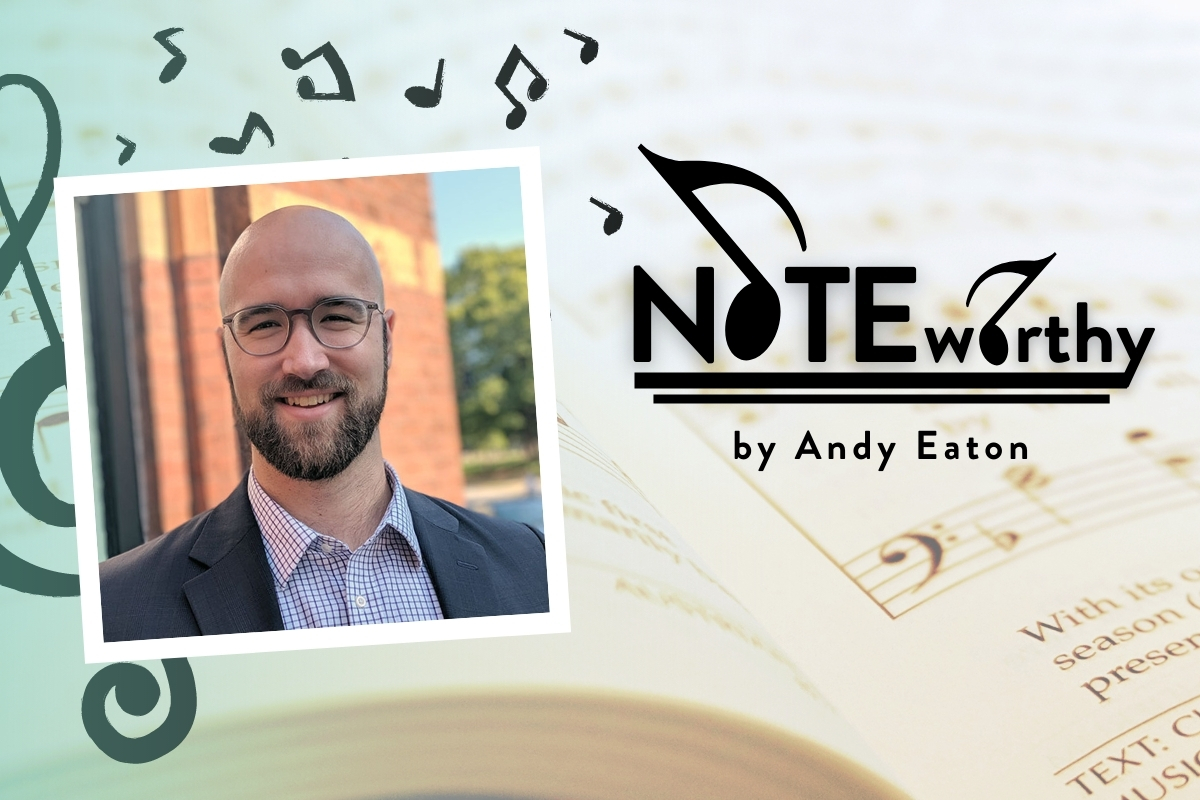Marcello Oboe Concerto BWV 974
Johannes Sebastien Bach arr. Martelli
Before I begin, I must confess that I wrote this week’s column before deciding on what music to pair it with. I move forward so blindly because this week, I found myself absolutely awestruck and inspired not by a piece of music, but by a quote. In that vein, it seemed appropriate to find my musical inspiration from a slightly different place as well.
This quote was admittedly heard third-hand – on a podcast by Malcolm Gladwell in which he interviews James Martin, SJ (Priest and editor at large of Jesuit magazine America) who quotes his old Moral Philosophy professor, James Keenan, SJ (Canisius Professor of Theology and Director of the Jesuit Institute at Boston College). And yet, despite this impressively pedigreed grapevine through which these words reached me, it is an idea so radical and simple, I think I would’ve been stopped in my tracks if anyone said it. The now over-introduced quote was this:
“Sin is not where people are weak but are trying, but where people are strong and not bothering…For Jesus, sin is a failure to bother to love;”
I think I speak for many people raised in the church when I say that my understanding of sin growing up was not this one. For me, sin was far more numerical, a matter of prevention rather than attention. It was a point total that you were trying to keep down, and even if you were doing your best to be better, that look of lust, that extra cookie, that covetous thought was a mark against you.
The problem with this ideology is that, among other things, it leads us to be perfectionist Christians. Our faith is measured by the rules we follow, rather than the measure with which we bother to love. We are turned into Pharisees by this “letter of the law” perspective, and through this lens, we look at Christ’s life as the “Best Score” of sinlessness. We see sinning as your golf score, and Jesus was WAY under par, a perspective that we not once see Jesus espouse in his lifetime.
In practice, much of Jesus’s ministry was intentionally working against this type of thinking. There are many gospel stories of how Jesus broke the rules. Jesus picked grain to eat with his disciples on the Sabbath (Mark 2:23-27), healed in the temple on the Sabbath (Luke 13:10-17, Mark 3:1-6), and didn’t have his disciples wash their hands before eating (Matthew 15:1-3). Although, I admit, it’s a bit tougher to disagree with the Pharisees on this one in 2021…
Sidestepping from the inevitable technicalities of “These weren’t really sins though,” they do illustrate the point that, at all times, in all situations, Christ bothered to love above all else. When he saw someone in need, He helped.
A good example of why this distinction matters comes from a book I read for my middle school basketball team (yes, my middle school basketball team had reading homework), Mind Gym by Sports Psychologist, Gary Mack. In it, he says:
“You get what your mind sets. The mind works most effectively when you’re telling it what to do rather than what not to do”
And gives an example:
“If you think ‘Don’t hit the ball in the water’ and you’re looking at the water, you have just programmed your mind to send the ball to its watery grave.”
This truth applies to our faith, too. When we focus our spiritual attention on avoiding our weaknesses, rather than expounding upon our strengths, we not only set ourselves up to fall into those temptations set for us, but we miss the bigger matter of bothering to love our neighbor!
So maybe, as wild as this may sound, don’t think about sin this week. As an exercise, dwell on your strengths, and how they can benefit the Kingdom and world, rather than the ways in which you don’t feel you measure up. Instead of being bothered by your own humanity, bother to love all humanity. Your gifts matter, and make the church, and the world, a better place. Let’s use them together.
Each of you should use whatever gift you have received to serve others, as faithful stewards of God’s grace in its various forms. 1 Peter 4:10
Now there are varieties of gifts, but the same Spirit; and there are varieties of service, but the same Lord; and there are varieties of activities, but it is the same God who empowers them all in everyone.
1 Corinthians 12:4-6
Andy Eaton
Director of Music
First Presbyterian Church

